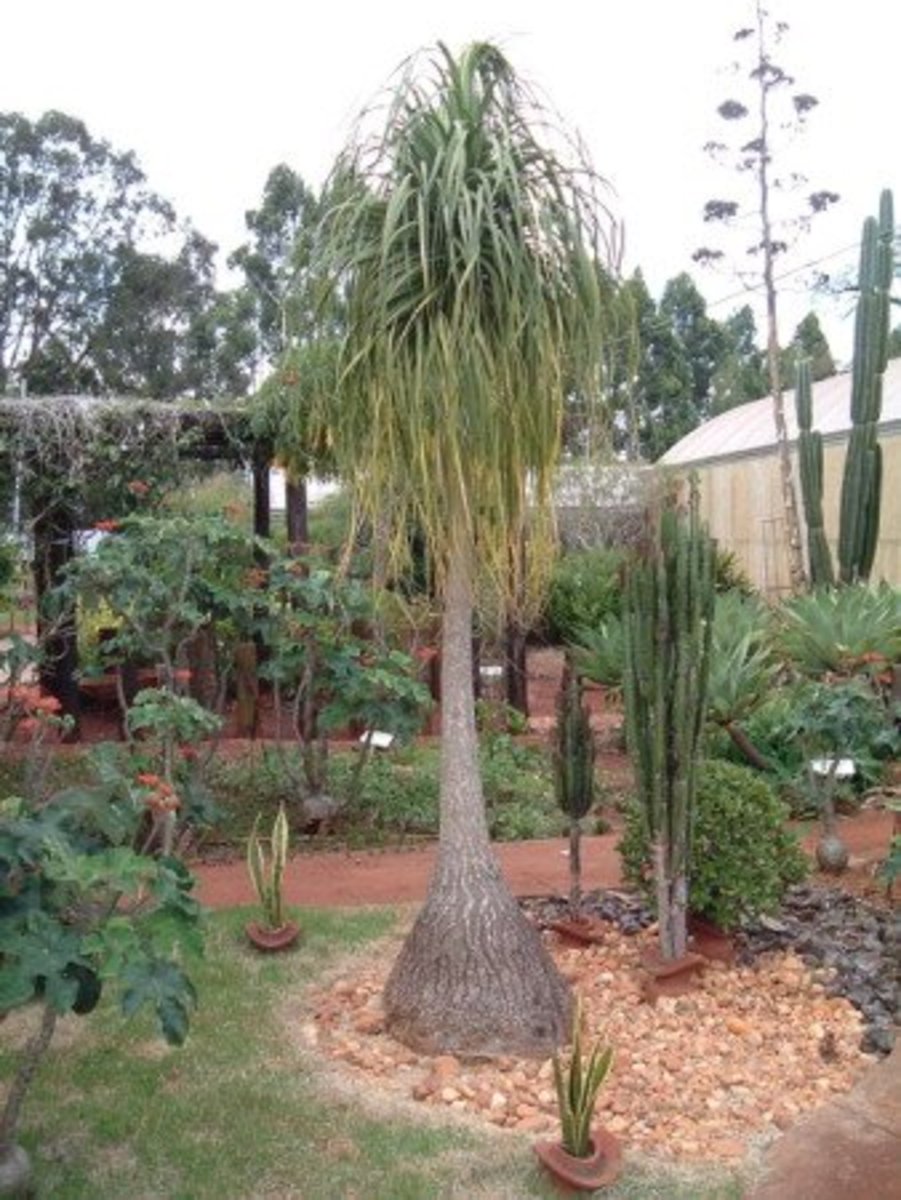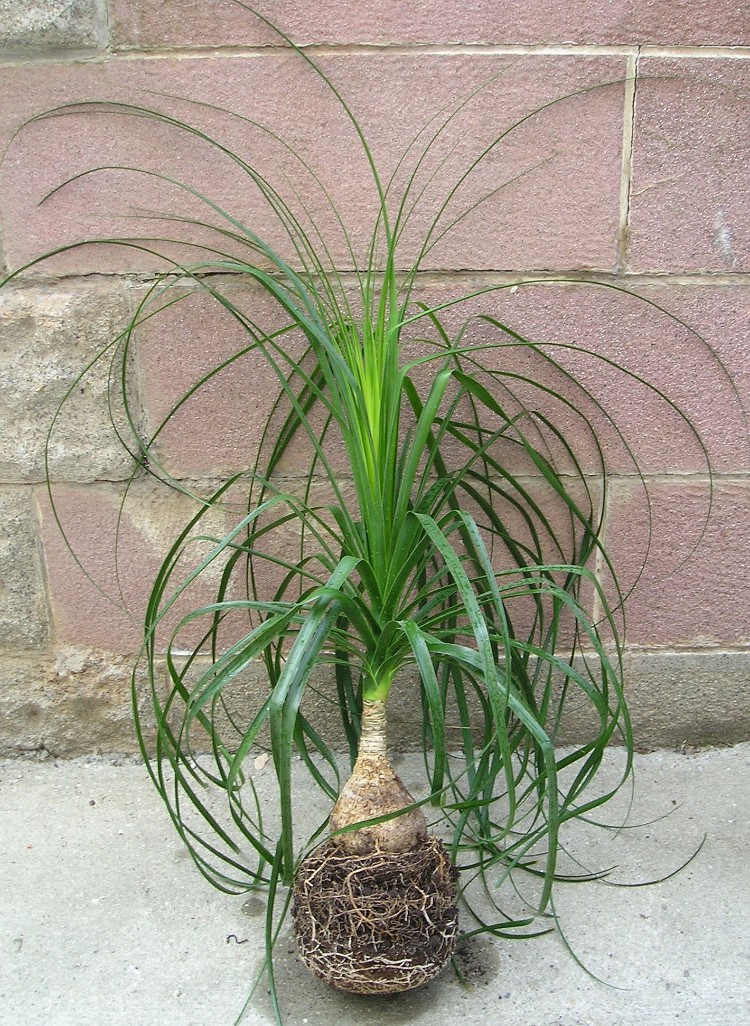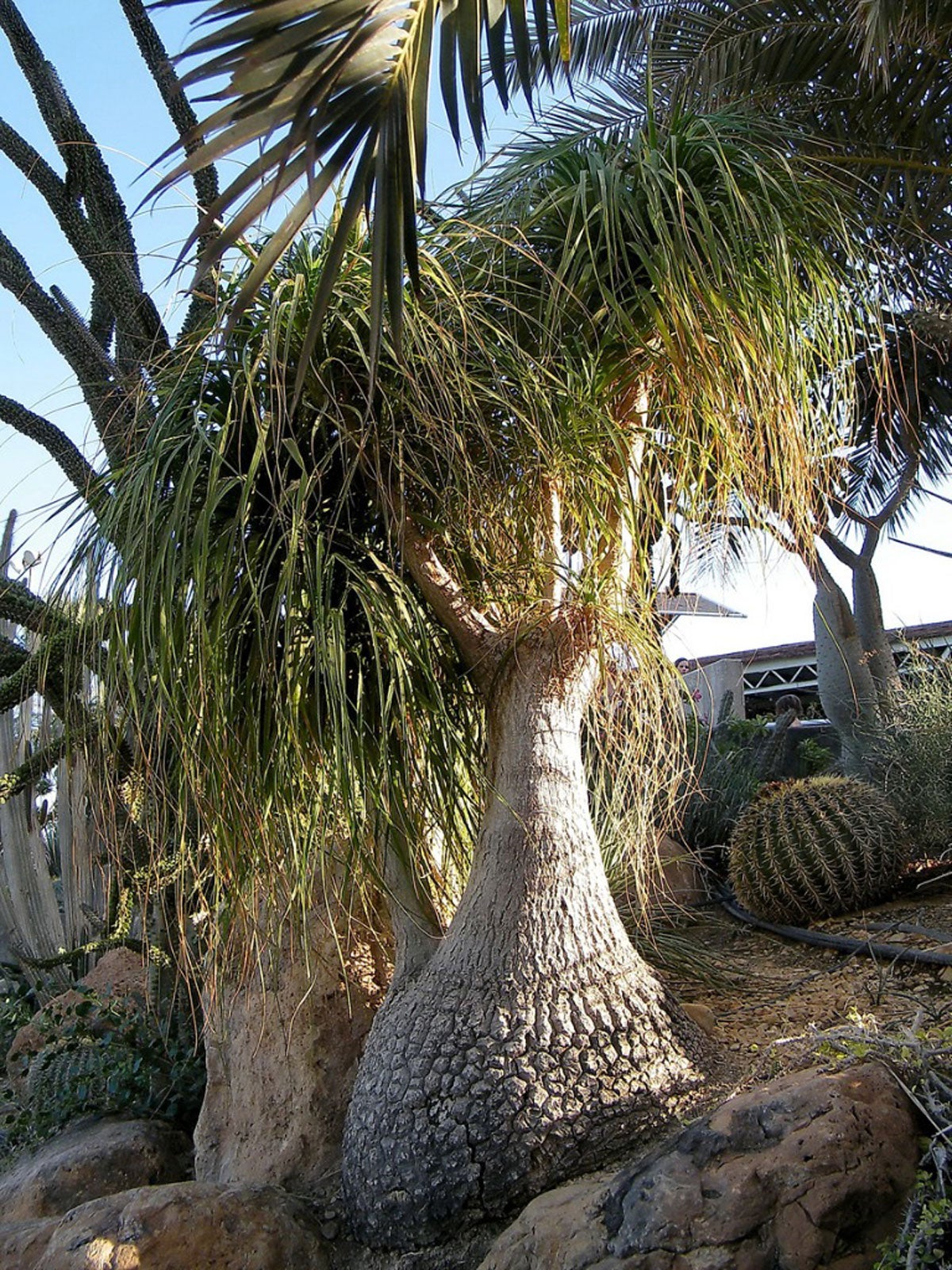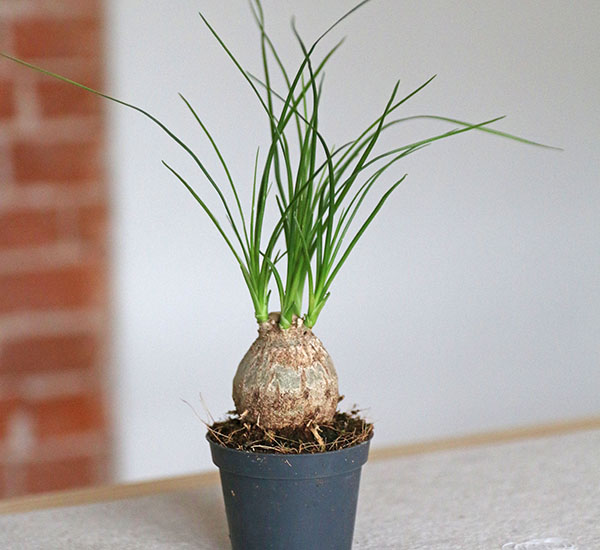
10 Fresh Seeds Ponytail Palm Beaucarnea Recurvata seed Etsy
2. Let your ponytail palm dry out between waterings. Ponytail palms are drought-tolerant and don't need a lot of water to thrive. Water your plant deeply until water drains out of the bottom of the pot, then hold off on watering it again until the soil has dried out. Overwatering your plant can kill it.

Trees Beaucarnea Recurvata Ponytail Palm
File this plant under the "avoid overwatering this plant, and you'll probably be able to keep it alive" category. Overwatering will lead to root rot. Water thoroughly and let the plant dry out between watering sessions. Water again once the top 2 inches of soil are dry (once a week or so).

How to Grow a Ponytail Palm Indoors or Outdoors Dengarden
Fri 18 Nov 2022 06.00 EST Why will I love it? The leaves on the Beaucarnea recurvata give the illusion that the plant is in constant, joyful motion. Despite its common name, this plant is not a.

Ponytail Palm beaucarnea Recurvata / Nolina Houseplant Etsy UK
11 How to Care for a Ponytail Palm Plant Catherine Boeckmann November 30, 2023 Sign up for daily gardening advice and tips Share Facebook Ponytail palms are unique-looking, long-lived indoor plants that thrive on benign neglect. They are very easy to grow, provided that you don't overwater them!

How To Care For A Ponytail Palm Indoors Smart Garden Guide
Plant details Common name: Ponytail palm, elephant's foot tree Botanic name: Beaucarnea recurvata (also known as Nolina recurvata and N. tuberculata) Description: A slow growing, evergreen tree to about 9m (30′) tall. Its palm-like trunk has a massive, swollen base, which may reach 3 metres (10′) in diameter.

Pictures Of Ponytail Palms They bloom for several weeks two or three times a year.
It's also highly beneficial to place a Ponytail Palm outside in summer, as long as the nighttime temperatures are above 10°C (50°F) in a semi-shaded environment for better quality growth. The ideal location around the house would be in a partially heated conservatory or within three metres of a north, east or west-facing window.
/ponytail-palm-care-growing-guide-884905710f3a4147b4d1579c0fb1e9a4.jpg)
Ponytail Palm Plant Care & Growing Guide
What Is a Ponytail Palm? Evergreen ponytail palm, Beaucarnea recurvata, is not actually a palm, but a succulent in the Asparagaceae family that also includes agave and asparagus. It is suited to outdoor cultivation in warm, dry regions of USDA Hardiness Zones 10 and 11. But it is also an exceptionally attractive, easy-care houseplant in all zones.

Ponytail Palm (Beaucarnea recurvata) Davenport Garden Centre
Ponytail palm is native to arid regions in Central America and is among the easiest of small trees to grow indoors. When planted outdoors, spring is the traditional planting time, though a ponytail palm can be planted at almost any time. This is a very slow-growing, long-lived species. It may take five years or more for a 1-foot-tall.

Ponytail Palm Beaucarnea recurvata 15 Seeds Plants, Inside plants, Growing plants
Repotting ponytail palms. Because of its slow growth, the ponytail palm does not need to be repotted often. Only when the trunk is the same circumference as the pot or the root ball is pushed out of the pot does this leisurely plant need a new home. This is the case approximately every three to five years.

Ponytail Palm 1pc National Plant Network U.S.D.A Hardiness Zone 8b11 Plants, Hanging plants
Beaucarnea recurvata, the elephant's foot [4] or ponytail palm, [5] is a species of flowering plant in the family Asparagaceae. The species was native to numerous states of eastern Mexico but is now confined to the state of Veracruz. [1] [6] Despite its common name, it is not closely related to the true palms ( Arecaceae ).

Buy Baby Ponytail Palm Suitable for Terrarium
Step 2: Prepare the pot with your growing medium and moisten the mix lightly with water. Step 3: Gently dig around your ponytail palm's offset with your hands to expose its base, then use a sharp, sterilized blade to cut it from the mother plant below the soil. Be sure to include any roots the offset has grown.

Ponytail Palm 10" Botanica
During the warm season, the plant prefers an average temperature of 70°F to 80°F (21°C to 27°C). So it's safe to say that the Ponytail Palm is suitable for most interiors. During the winter, it prefers a colder temperature of 50°F to 55°F (10°C-13°C). However, avoid freezing temperatures at all costs as they can severely damage the plant.

Ponytail Palm
Discover unbeatable deals and discounts on the Temu App. Download Now & Save Big! Ready to shop and save? Explore amazing deals on the Temu App. Free shipping & return.

Ponytail Palm beaucarnea Recurvata / Nolina Houseplant Etsy UK
Grow ponytail palm in a free-draining house plant compost in bright, indirect light. Water sparingly and allow the compost to dry out completely between waterings. It is normal for older leaves to turn brown and dry out, especially the tips. You can trim these brown tips if you prefer a neater appearance, but it is not necessary for the plant's.

Ponytail Palm Bonsai Care Trimming Ponytail Palms Into Bonsai Specimens
The Ponytail Palm, also known as Beaucarnea Recurvata, or Nolina is a distinctive looking popular houseplant with a swollen thick brown stem at its base that stores water. The long narrow curly, dark green leaves flow up from this base much like a plume of water in a fountain.

pony tail palm tree Palm tree flowers, Blooming succulents, Palm tree types
Frequently Asked Questions Conclusion on Ponytail Palm Care Ponytail Palm Takeaways Care for a Ponytail Palm The ponytail palm prefers bright light. Provide it with a well-draining succulent potting mix. Water every 3-4 weeks. The ideal temperature range is between 60-80°F (16-27°C). A humidity of 40-50% is sufficient.